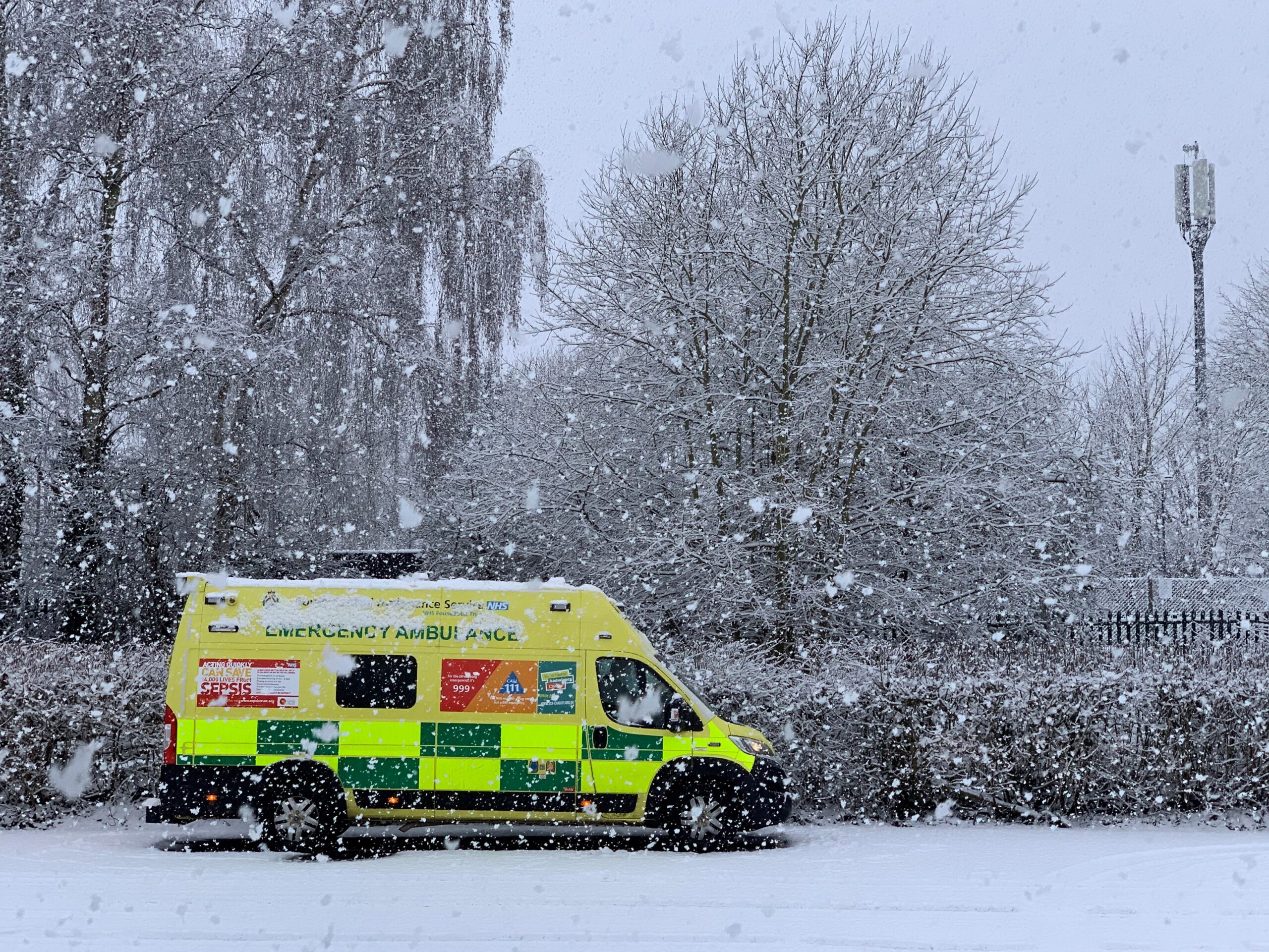Staff and volunteers across South Central Ambulance Service NHS Foundation Trust (SCAS) are gearing up for the busy winter period and alongside their own preparations, are also asking for the public’s help.
Every year, SCAS faces a significant increase in calls to its 999 and NHS 111 services as cold winter weather exacerbates many people’s long-standing health conditions and also sees a huge rise in the number of patients who fall seriously ill with flu, COVID-19 and other respiratory illnesses.
Paul Jefferies, Assistant Director of Operations at SCAS, said: “The winter months always bring additional challenges, not just for our services but for the whole NHS. We have been working hard for a number of months to ensure we’re ready for winter, but we need the public to help us by making the right call when it comes to any emergency or urgent health needs.
“You should only call 999 if you, or someone you’re with, is suffering a serious or life-threatening emergency. This includes things like severe bleeding or burns, unconsciousness, someone not breathing or symptoms of stroke, heart attack or other life-threatening conditions. This will ensure that staff in our control rooms and out on the road can be available for patients who need our help immediately.”
For all urgent, but not emergency needs, SCAS is urging the public to use its 111 service, firstly going online for a guided self-assessment at 111.nhs.uk or calling 111.
Paul Jefferies added: “Thanks to the efforts of our recruitment and training teams, we now have more call handlers and clinicians, including GPs, working in our NHS 111 service and have seen average call answer times reduce from a high of around 40 minutes last winter to just over two minutes in September.
“NHS 111 should be used by all patients who have an urgent medical need, rather than calling 999 or going to your local A&E. Whether you’re using the online assessment or the telephone, you just need to answer the same few questions about your main symptoms to get the right information or advice, and if needed a nurse or GP will call you back.”
Other ways that the public can help their local ambulance service, and keep themselves healthier this winter include:
- Making your own way to hospital or an urgent treatment centre if you’re able to do so as arriving by ambulance doesn’t mean you get seen any quicker if you don’t need to be
- Getting your flu and COVID-19 vaccinations if eligible to reduce the risk of getting serious and potentially life-threatening infections
- Making use of local pharmacists, who are trained medical professionals, for advice and treatment for common winter ailments before they develop into something more serious
- Checking in regularly with elderly or vulnerable family members, friends and neighbours, particularly in any periods of very cold weather
- Ensure you order and collect repeat prescriptions well in advance so you don’t run out of vital medication that could lead you to becoming very unwell
- Download the NHS App where you can find trusted NHS information and advice on hundreds of conditions and treatment, as well as access NHS services
Ends

